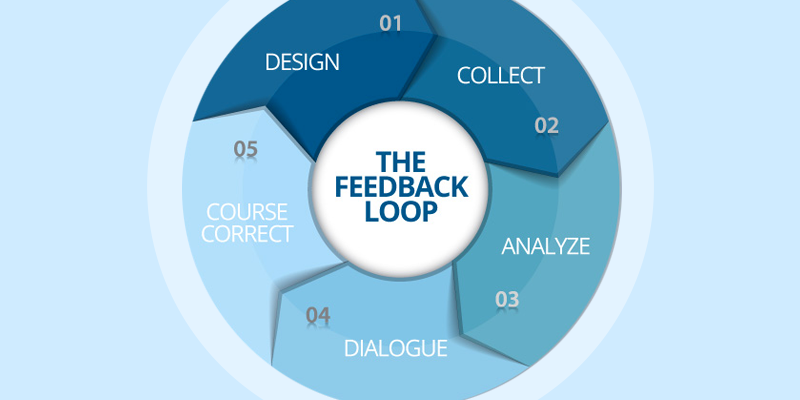Crossposted from Ashoka Changemakers 3/10/15

Closing the loop both the ‘right thing and smart thing.’
(Washington, D.C.) – On March 10, Feedback Labs, a consortium of leading domestic and international organizations in the for-good sector, released the first version of its flagship product, the Feedback Toolkit. The Toolkit helps organizations improve the way they listen to their constituents to be more responsive to the people they are trying to serve – and ultimately to improve outcomes. Development of the Toolkit was led by founding Labs member Ashoka Changemakers in collaboration with other founding members including Keystone Accountability, Development Gateway, and GlobalGiving. Platform was developed by District Design Group, and strategic advice and funding were provided by the Rita Allen Foundation.
Purpose of the Toolkit
As Fay Twersky, Phil Buchanan, and Valerie Threlfall wrote in the spring 2013 issue of the Stanford Social Innovation Review, Labs members believe that listening to constituents “isn’t just the right thing to do; it’s the smart thing to do.” The Toolkit represents Feedback Labs’ first step toward helping aid agencies, foundations, and governments both listen and act: What do our constituents want to make their lives better? Are we helping them get it? If not, what should we do differently? For the past year, Feedback Labs has been building a network of practitioners, policy makers, technology platforms, and funders that aim to invert the top-down tendency of aid, philanthropy, and even governments. Labs members argue that constituents themselves should be in the drivers seat, with experts in a supporting role during the program selection and design process.
How it works
The Feedback Toolkit has two parts: the Feedback Quiz, and the Resource Library. The Quiz is a diagnostic to help you determine where your organization is strongest and weakest along the Feedback Loop. We developed this Quiz in partnership with Keystone Accountability, and it is based on the Constituent Voice Methodology. The Quiz gives you a Feedback Score, and then presents you with a curated list of resources from the Resource Library.
Three kinds of resources populate the Resource Library: Tools (Feedback tools that are cross-listed on the Feedback Store), Guides (how-to guides pertaining to closing feedback loops in specific contexts) and Examples (short case studies of organizations with closed feedback loops, featuring Guides and Tools).
Walking the Talk:
Feedback Labs itself has learned a great deal during the development and launch process about closing feedback loops. Dennis Whittle, who helps coordinate the work of Labs members, says, “We are calling this release of the Toolkit ‘Version 0.9’ to signal that we intend to walk our own talk and update it soon. In fact, we will be taking the Feedback Quiz for the Toolkit on a monthly basis, and will be publishing our score. We will also be publishing and responding to all of the feedback you send us here. We commit to responding to your feedback within 48 hours.”
The Labs seeks feedback and invites participation in the following ways:
1) Feedback Quiz has built in feedback opportunities
2) Feedback button on feedbacklabs.org
3) Email us at [email protected]
4) Tweet (and share!) at @feedbacklabs
“With every new idea that has the potential to be transformative, there is a tendency to jump exclusively into the doing. But for change to be sustained, it is critical to capture and share learning about experiences on the ground,” said Elizabeth Christopherson, President and CEO of the Rita Allen Foundation. “We are excited to see the Feedback Labs Toolkit harness emerging learning about new ways of seeking feedback and acting on it. We hope that it will inspire and inform further experiments to make the social sector more responsive and ultimately more effective.”
Looking ahead
In future iterations of the Toolkit, Feedback Labs plans to implement a profile system, so that individual users and organizations can easily track their progress, and compare themselves against their peers. Additionally, Feedback Labs plans to facilitate communities of interest and other features such as video chats to allow users to engage in deeper conversation with other Toolkit users who are facing similar challenges.
“The scores, benchmarking, and custom resource suggestions are an incredible asset for our team,” said Reem Rahman, Knowledge Manager at Ashoka Changemakers. “As we try to become more agile at improvement and increasing our impact, we will have each team member take the quiz, and seek to improve our results over time.”
About the Rita Allen Foundation
The Rita Allen Foundation invests in transformative ideas in their earliest stages to leverage their growth and promote breakthrough solutions to significant problems. The Foundation uses strategic philanthropy to promote civic literacy and engagement, as well as to support young leaders in the sciences and social innovation.







